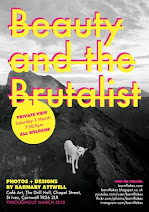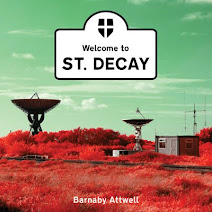The idea of total immersion in a bath is an attractive proposition during these cold days, so I've taken to having the odd one. It feels like such an indulgence, I love it. I remember the days, years ago now, when my bathing ritual (and it is a ritual) used to involve lots of bubble bath, lighting numerous candles, having a book and music playing, a G&T and cigarettes on the side of the bath. This proved annoying for housemates when I had four of them and only one bathroom; I liked to spend over an hour in the tub.
But the bath has fallen from favour and been replaced in popularity by the shower. Who has time for such an indulgence as a bath nowadays? The shower is symptomatic of modern life: quick, practical and efficient (it uses less water than a bath). The bath is a quaint anachronism, something to take ones time over, to lie down, reflect, indulge, a retreat from the outside world. Yet it has powerful ritual and religious significance; babies in the womb are surrounded by liquid; once born, babies and children are always bathed not showered. In Christianity, the baptism is a rite of admission.
The bath vs shower debate (which is non existent, I realise) reminds me of the coffee vs tea debate. Coffee, like the shower, appeals to people on the go, whereas tea has a more ritualistic, quaint, old-fashioned aura to it (like a bath). However, as no doubt I've mentioned before, coffee actually takes longer to make than tea, and the huge cup sizes in the like of Starbucks take about an hour to finish (and tend to give me an upset stomach). In sexual terms, the shower is the equivalent of a quick screw; the bath is like long, sensual love-making. Remember the Flake bath advert from the early 1990s (pic above)?
The public bath, most popular during ancient Greek and Roman times as well as during the Ottoman Empire, was the inspiration for the Islamic hammams, which translates as 'spreader of warmth'. The bath took on religious significance, with cleanliness being next to godliness (a phrase not actually found in the Bible). But also the hammam was – and still is – a place to socialise. Men and women have separate hammams, naturally, and especially for women in strict Islamic countries, perhaps, it remains one of the few places for them to gossip without men around. So important was this for women that a husband not allowing his wife to visit a hammam was grounds for divorce.
But over time the public bath became a private, individual bath. In recent times, this has been a common general trend in society, mainly due to technology. Once communal events such as music, performance and film have become individual, even anti-social (even, or despite, the rise of social media), and we immerse ourselves in our inner world with our laptops, smartphones, iPods and iPads, where we listen to music, watch film and TV, read books and newspapers, and supposedly communicate, somehow thinking we are being more social and more informed by glaring and typing into a small, electronic device.
Monday, January 21, 2013
Subscribe to:
Post Comments
(
Atom
)














No comments :
Post a Comment